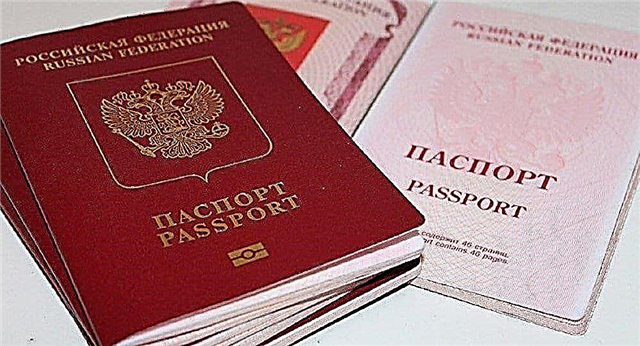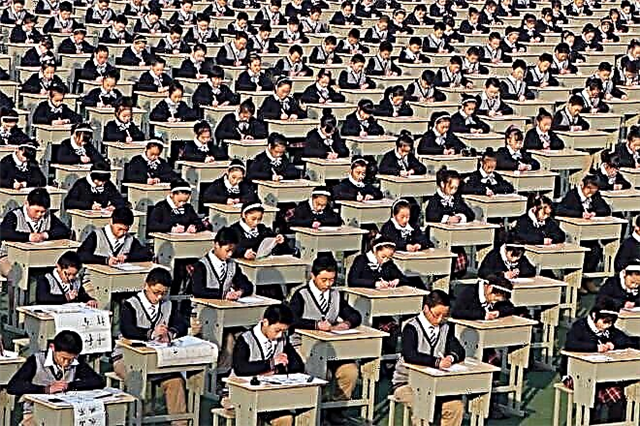The People's Republic of China (PRC) is a dynamically developing country. As modern forecasts show, this state will be at the forefront of world politics and economics for a long time to come. Due to the rapid progress and the creation of new jobs, the demand for highly qualified specialists is constantly increasing here. Therefore, education in China meets modern international standards.

What are the advantages of studying in the PRC
Among the advantages of Chinese education are:
- High quality educational services. In educational institutions of the country, innovative teaching methods are being actively introduced. In 1998, the PRC Law "On Higher Education" was adopted, which brought Chinese universities to the world level. China has introduced academic qualifications that are recognized in all countries.
- Wide range of employment opportunities. For foreigners who received professional education in China, adapted to life in Chinese society, and are fluent in the Chinese language, there is always the prospect of getting a job in one of the local or international companies.
- Introduction to the colorful Chinese culture. Representatives of about 56 ethnic groups live in the PRC. Students have the opportunity to get acquainted with their customs and traditions.
- The prospect of winning a grant or receiving a scholarship. First of all, this concerns talented individuals, the support of which is practiced by the state.
In addition, studying in China for Russians and other foreigners will be much cheaper than in the United States of America (USA) or Europe.
Chinese educational system
The modern education system in the PRC is similar to the one that exists on the territory of the Russian Federation. From 3 to 6 years old, children attend kindergartens, from 6 to 11 years old - primary school, from 12 to 14 years old - secondary school, from 15 to 18 years old - senior classes.
After graduating from school, you can enter a university, vocational school or college. By the way, vocational schools and colleges are accepted both after high school and on the basis of secondary school.
Inclusive education in China occupies a special place. For children with disabilities, special educational programs are developed and implemented, aimed at learning and integration into society.
Over the past two decades, a large number of experiments have been carried out aimed at teaching children with disabilities in regular classrooms. This is one example of an innovative way of organizing inclusive education in the state.
Features of preschool education
There are both public and private kindergartens in the PRC. In state preschool institutions, the emphasis is on preparing children for school, teaching them to work, and instilling strict discipline. Every private kindergarten in China is focused on the application of an individual approach to pupils, the development of their creative abilities, familiarization with the achievements of science and art.
Morning in kindergarten begins with raising the national flag. The whole day is clearly scheduled, since any free minute in the PRC is classified as idleness. All children's games are under the strict supervision of educators.
In a place of honor - issues of accuracy and personal hygiene. Close attention is paid to how thoroughly children wash their hands before eating. In some kindergartens, pupils remove the dishes from their tables by themselves after eating. It is believed that this approach contributes to the upbringing of children in a spirit of hard work.
Specificity of school education
 In elementary and secondary schools, children study for free, senior classes are paid. The junior school program is focused on the study of the Chinese language, mathematics, natural history, history, music.
In elementary and secondary schools, children study for free, senior classes are paid. The junior school program is focused on the study of the Chinese language, mathematics, natural history, history, music.
Ethics classes may be provided. A production practice is envisaged, during which students are introduced to work on farms, in workshops.
The secondary school studies Chinese and foreign languages, mathematics, computer science, geography, history. There are lectures on political literacy. Upon graduation from high school, an examination is taken in a test form.
Graduates planning to enter universities must continue their studies in senior classes, before enrolling in which they need to choose a basic profile - academic or vocational.
The grading system in Chinese schools is 100 points. The school day lasts about 10 hours. The first half of the day is devoted to the study of basic subjects, and the second half of the day is devoted to additional ones. Even on vacation, everyone is working on their homework.
Strict discipline is established in educational institutions. The entrance gate is only open twice a day. For 12 absenteeism, it is even possible for a student to be expelled from high school (since they are not included in the system of compulsory secondary education).
Higher education system
As in Russia, higher education in China is three-stage:
- bachelor's degree;
- magistracy;
- doctoral studies.
You can apply for a bachelor's program after graduating from high school or vocational school. The duration of study for a bachelor's degree is 4 years (for medical specialties - 5 years).
Admission to the master's program is possible only on the basis of a bachelor's degree. The duration of study on a master's program varies in the range of 2-3 years, depending on the specialty chosen by the student.
To get a doctorate in China, you need to study 3-4 years and defend a scientific dissertation.
There is an opportunity to undergo distance learning in the PRC. Many universities offer their students online courses, training mobile applications, sites with video lessons.
The government of the country is working on the creation of a special Open University of the PRC, where it will be possible to improve qualifications online.
Choosing a university
Chinese university diplomas are quoted in 64 countries. Most of the educational institutions have a narrow specialization. Top universities include:
- Tsinghua University (Beijing). Founded in 1911. It has 16 institutes and 56 faculties in its structure.
- People's University of China (Beijing). It has been operating since 1937. Consists of 23 institutes.
- University of Foreign Languages (Shanghai). Founded in 1949. It unites 20 faculties and 5 research institutes.
- University of Foreign Languages (Dalian). Founded in 1964. It has 20 schools and faculties, 21 research centers.
- Liaoning University (Shenyang). Has been working since 1906. Consists of 21 colleges.
- South China University of Technology (Guangzhou). Created in 1952. There are 23 faculties.
- University of Hong Kong (Hong Kong). Founded in 1911. It unites 10 faculties.
- National Taiwan University (Taiwan, Taipei). It has existed since 1928. The structure includes 11 colleges and 4 research centers.
Popular universities include Peking University of Language and Culture, China Oceanological University, Peking Normal University and others.
Rules for admission to Chinese universities for foreigners
The popularity of Chinese higher education institutions among foreign applicants is growing every year. Therefore, the question of how to enter a Chinese university is one of the most relevant.
It should be noted that the admission of documents to higher educational institutions of the PRC is carried out twice a year. To start studying from the first semester, you need to submit documents from March to June, from the second - from October to December.
List of required documents
The list of official papers that should be provided to the selection committee includes:
- application of the applicant;
- copy of the passport;
- color photographs 30 × 40 mm;
- original and copy of the certificate of secondary education and its annex with grades (the document should be translated into Chinese / English and certified by a notary office);
- HSK (Hanyu Shuiping Kaoshi) certificate confirming knowledge of the Chinese language. It is possible to study in China without knowing the language: you can choose an English-language program and learn Chinese in the learning process. But in this case, you will need a TOEFL certificate, confirming knowledge of English;
- letters of recommendation (from the previous place of study, work);
- motivational essay;
- summary;
- a certificate from a banking institution confirming solvency;
- portfolio for applicants to creative specialties.
If the applicant is enrolled, the university sends him a notice of admission, a JW201 or JW202 visa invitation, as well as a form for passing the medical examination.
All these documents, together with a foreign passport (must be valid for at least another year and a half), two color photographs (paper photo size 33 × 48 mm, digital - between 354 × 472 and 420 × 560 pixels), health insurance policy, payment receipt educational services will be needed when applying for a student visa.
The validity of the visa applies to the entire declared period of study.
Completing preparatory courses
 In Chinese higher education institutions, foreign applicants have the opportunity to take preparatory courses aimed at learning Chinese and English. If you wish, you can choose not one of them, but sign up for both programs.
In Chinese higher education institutions, foreign applicants have the opportunity to take preparatory courses aimed at learning Chinese and English. If you wish, you can choose not one of them, but sign up for both programs.
Preparatory courses are designed for 12-24 months. After their successful completion, the applicant receives admission to the development of disciplines in his chosen specialty.
Exams for Chinese universities
Once a year, the Chinese Ministry of Education conducts the National Higher Education Entrance Exam - Goacao. It includes three main disciplines (English, mathematics, Chinese literature) and two additional ones for the applicant's choice (natural sciences and humanities).
Based on the results of Goacao, you can enroll in a bachelor's program. Also in China, there is an opportunity to pass the usual entrance testing at a specific university, which is used by foreign applicants.
Chinese language schools
There are many language schools in the PRC, in which foreigners of different age categories can take language courses and at the same time get acquainted with the peculiarities of Chinese culture. The programs of many of them also include excursions to the sights of China.
According to the reviews of many students of Chinese language schools, in 2021, the best of them should be attributed to:
- Mandarin House. It has centers in Guangzhou, Beijing and Shanghai. Offers various programs: "Business Chinese", "Conversational Chinese", "Intensive Chinese course". Provides the opportunity to visit a youth summer camp. The minimum training period is 7 days. Prices start at $ 290 per course.
- Hainan Language School. Located in the city of Haikou. Offers courses for all age groups. For students from Russia, the school is staffed with Russian-speaking staff. Tuition for 30 days costs about $ 450.
- Omeida. Located in Yangshuo city. The specificity of the school is teaching students in mini-groups, maximum 5 people. All students have the opportunity to have daily language practice in tandem with a Chinese partner. Hiking, mountain, river, bicycle rides are organized in their free time. The minimum course duration is 7 days. The cost of training for this period is from $ 215.
There are language camps for children's audiences in the PRC. You can go there on a winter or summer vacation. The cost of the voucher includes accommodation, meals, training, leisure.
How much does it cost to study at universities in China
If we weigh all the pros and cons of Chinese education, we can conclude that its relatively low cost is an indisputable advantage (in comparison with the USA, Germany, Great Britain, France and other Western countries). A year of study will cost an average of 3-8 thousand dollars. It all depends on the chosen higher educational institution, specialty, academic program.
Rental costs will range from $ 200 to $ 300 per month.
Living in Beijing, Shanghai and other megacities, taking into account rental housing, food and other expenses, will cost $ 700-800 per month, in small cities this amount will be approximately one and a half times less.
Many universities in the PRC provide dorm rooms for foreign students. The government of the country, private foundations and universities themselves practice awarding scholarships and grants to talented students, thereby providing them with free education in China.
Notable grants and scholarships
Talented Russians, Ukrainians, Kazakhstanis and citizens of other countries have the opportunity to apply for such popular scholarships and grants:
- Chinese government scholarships. The program covers 94 state-owned Chinese higher education institutions. The amount of material assistance depends, as a rule, on the educational level of the applicant, ranging from 270 to 300 dollars per month.
- Chinese Culture Research Fellowship Scheme. The program is suitable for master's and doctoral students who want to study Chinese culture and language. Duration of training is six months. The amount of monthly material assistance is up to $ 470.
- China / UNESCO the Great Wall Fellowship Scheme. Designed for masters and doctoral students of English-language educational programs who have received recommendations from the UNESCO Foundation. The amount of the scholarship is up to $ 400 per month.
It should be noted that grants and scholarships do not always cover 100% of education costs. They can provide partially free training.
Grading system
In the universities of the PRC, there is a letter system for assessing knowledge. A total of 5 ratings are used. Their meaning is shown in the table below:
| Assessment of the Chinese system | Meaning |
|---|---|
| A | Fine |
| V | Good |
| WITH | Satisfactorily |
| D | Offset |
| F | Doesn't matter |
Before graduating from bachelor's, master's and doctoral studies, students need to write and defend their thesis projects: for bachelors - 50-70 pages, for masters - 100-120 pages, for graduates of doctoral programs - at least 300 pages. Works are performed in one of two languages - Chinese or English.
Student life
 The academic year in China begins on September 1st. The first (fall) semester lasts until the end of January. From the end of January to the end of February, students go on winter holidays.
The academic year in China begins on September 1st. The first (fall) semester lasts until the end of January. From the end of January to the end of February, students go on winter holidays.
The second (spring) semester lasts from early March to early July.
In summer, students have 2 months of rest.
Studying at the university means attending lectures, seminars, writing homework. To move on to the next course, a student must pass exams, collect the required number of credits. In the presence of many passes without good reason, students are not allowed to take the session.
Foreign citizens studying at Chinese universities are not allowed to work officially on a student visa during their studies. Violation of this condition will be followed by a number of problems: expulsion from the university, visa revocation and deportation from the PRC. Employers will also be punished with fines.
But many foreigners take part-time jobs unofficially, receiving wages in an envelope. These activities include shooting commercials, tutoring, and the like. The main thing is that work does not become the reason for absenteeism and poor performance.
Where can I find work after graduating from a Chinese university
Talented and successful graduates who speak Chinese can count on employment in the PRC. Any local company is interested in attracting promising employees.
Many graduates choose to leave for Europe in order to find work. And this is quite real, because Chinese diplomas are quoted on the territory of European states.
But European companies will give preference to a graduate of a Chinese university only if he has long experience in his specialty or an impressive list of professional achievements. In other situations, Europeans prefer to hire their graduates.
Citizens of the Russian Federation who graduated from Chinese universities can return to their homeland and find work in a local firm or in a branch of a Chinese company. Many Chinese corporations have offices in Russia.
Doctoral graduates can always pursue an academic career. Promising scholars are readily recruited into teaching positions at both Chinese and foreign universities.
Outcomes
In the PRC, the government pays much attention to the development of the educational sphere. This is due to the rapid growth of the economy, science, technology in the country and the growing demand for highly qualified personnel. Educational institutions in China willingly open their doors to foreigners. And the latter tend to come to study in the country (including exchange) due to the high quality and affordable cost of local educational services.
The development of e-learning in China makes it possible to receive education remotely. About 30 universities in the country provide educational services for part-time students on the Internet (for example, through communication between teachers and students on Skype). Chinese diplomas are quoted in many countries of the world, and graduates of Chinese universities can count on employment in China, Europe, and the CIS countries.











